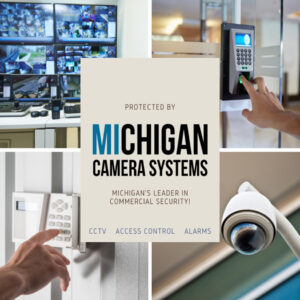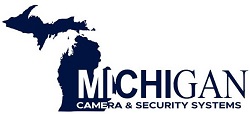How Security plays a pivotal role to protect patients in behavioral health facilities
How Security plays a pivotal role to protect patients in behavioral health facilities
Security in Behavioral Health Facilities: A Crucial Element for Patient Safety

Behavioral health facilities play a vital role in society, providing essential care and support for vulnerable patients struggling with mental health challenges. These facilities offer a safe haven for individuals dealing with various behavioral and psychological disorders, allowing them to heal and recover. Learn More about how-security-plays-a-pivotal-role-to-protect-patients-in-behavioral-health-facilities-in-michigan. Toll Free: 800-941-6797 | Local: 586-466-4490
Behavioral health facilities require a secure, controlled setting to protect patients and staff. Patients within these facilities may be susceptible to moments of crisis, agitation, or even self-harm. Hence, it is essential to implement robust security measures that safeguard everyone involved. Learn More about how-security-plays-a-pivotal-role-to-protect-patients-in-behavioral-health-facilities-in-michigan.
Key Security Measures in Behavioral Health Facilities
Some of the critical security measures that can be implemented in behavioral health facilities include:
1) Access control: This involves restricting access to sensitive areas, such as medication storage, staff-only zones, and patient rooms. Access control systems can include key cards, biometric authentication, and surveillance cameras.
2) Surveillance: Surveillance cameras can be installed throughout the facility to monitor patient activity and deter unauthorized entry. This can also help to identify and respond to potential incidents quickly.
3) Staff training: Staff members should be trained to manage crises and ensure patient safety. This may include training on de-escalation techniques, physical intervention, and emergency protocols.
4) Security personnel: In some cases, it may be necessary to have security personnel on-site to provide additional support and security.
By implementing these and other security measures, behavioral health facilities can create a safe and supportive environment for patients and staff alike.
Benefits of Enhanced Security in Behavioral Health Facilities
Enhanced security in behavioral health facilities can offer several benefits, including:
1) Reduced risk of harm: Robust security measures can help to reduce the risk of injury to patients, staff, and visitors. This can help to create a more peaceful and healing environment for everyone involved.
2) Improved compliance: Security measures can help to ensure that patients comply with their treatment plans and that staff members follow safety protocols. This can lead to better outcomes for patients.
3) Increased confidence: Enhanced security can help to increase the confidence of patients, their families, and staff members in the facility’s ability to provide a safe and supportive environment. This can lead to better outcomes for everyone involved.
Conclusion
Security plays a crucial role in protecting patients and staff in behavioral health facilities. By implementing robust security measures, these facilities can create a safe and supportive environment where patients can focus on healing and recovery.
Behavioral Health Facilities: Unique Challenges and Security Solutions
Behavioral health facilities, also known as mental health facilities or psychiatric hospitals, provide specialized care and support for individuals facing mental health and behavioral disorders. These facilities offer various services, including inpatient and outpatient care, therapy, counseling, and medication management.
Unique Challenges
Behavioral health facilities face several unique challenges, including:
1) Patient aggression: Mental health disorders can sometimes lead to outbursts of violence or aggressive behavior, posing risks to patients and staff.
2) Self-harm: Patients may attempt to harm themselves intentionally, either due to hopelessness or despair or as a way to cope with their symptoms.
3) Elopement: Patients may leave the facility without permission or proper supervision due to feelings of distress, agitation, or confusion.
Security Solutions
To address these challenges, behavioral health facilities must implement robust security measures. A comprehensive security plan should include the following key elements:
1) Access control: This involves restricting access to sensitive areas, such as medication storage, staff-only zones, and patient rooms. Access control systems can include key cards, biometric authentication, and surveillance cameras.
2) Surveillance: Surveillance cameras can be installed throughout the facility to monitor patient activity and deter unauthorized entry. This can also help to identify and respond to potential incidents quickly.
3) Alarm systems: Alarm systems can be triggered by various events, such as unauthorized access attempts, patient aggression, or attempts at self-harm. Audible alarms and visual alerts placed throughout the facility can instantly notify staff of a security breach or emergency, allowing for swift responses.
Benefits of Enhanced Security
Enhanced security in behavioral health facilities can offer several benefits, including:
1) Reduced risk of harm: Robust security measures can help to reduce the risk of injury to patients, staff, and visitors. This can help to create a more peaceful and healing environment for everyone involved.
2) Improved compliance: Security measures can help to ensure that patients comply with their treatment plans and that staff members follow safety protocols. This can lead to better outcomes for patients.
3) Increased confidence: Enhanced security can help to increase the confidence of patients, their families, and staff members in the facility’s ability to provide a safe and supportive environment. This can lead to better outcomes for everyone involved.
Conclusion
Security is a critical component of behavioral health facilities. By implementing robust security measures, these facilities can create a safe and supportive environment where patients can focus on healing and recovery.
In addition to the key elements listed above, behavioral health facilities should also consider the following:
1) Staff training: Staff members should be trained to handle crises and ensure patient safety. This may include training on de-escalation techniques, physical intervention, and emergency protocols.
2) Environmental design: The physical environment of a behavioral health facility can also play a role in security. For example, the facility should be well-lit and have clear sightlines to minimize opportunities for hiding or concealment.
3) Collaboration with law enforcement: Behavioral health facilities should develop and maintain relationships with local law enforcement agencies to ensure a coordinated response to security incidents.
By taking a comprehensive approach to security, behavioral health facilities can create a safer and more supportive environment for their patients and staff.
Service and installation for these makes and models and more





